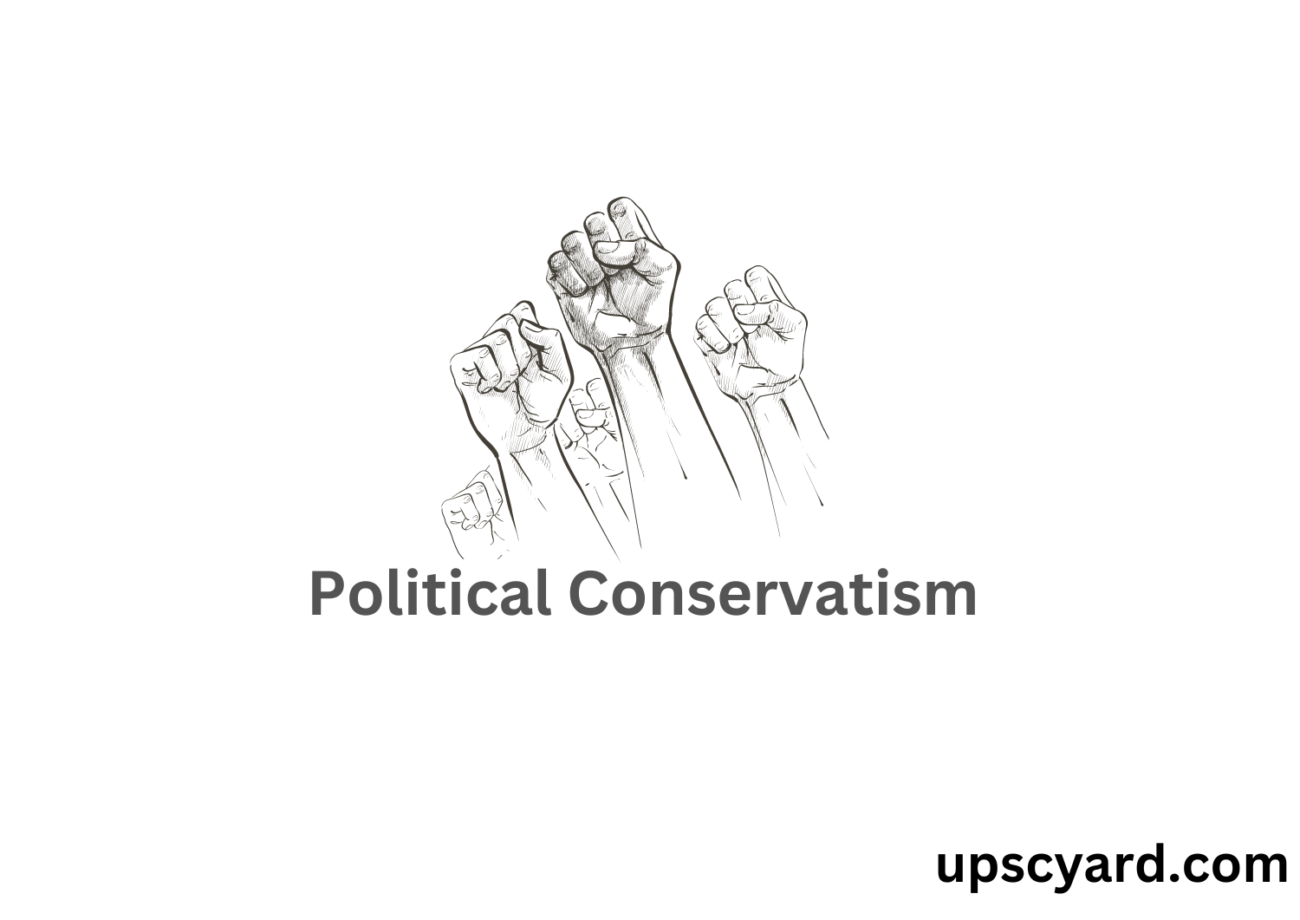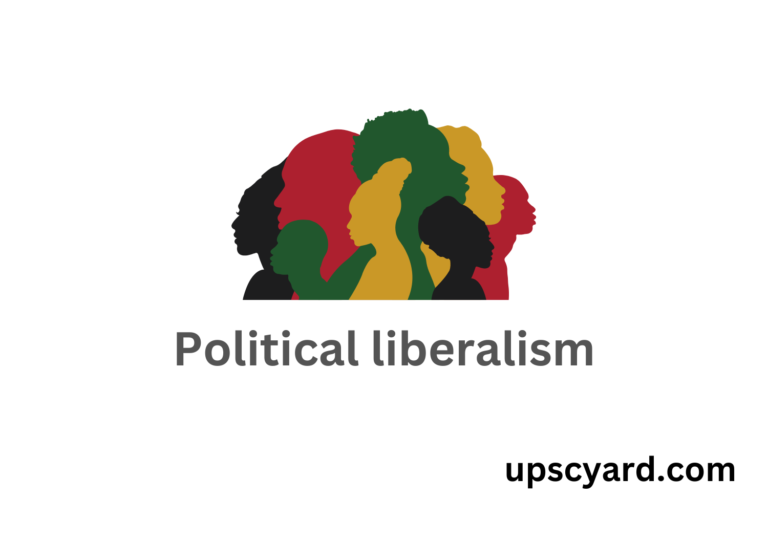Political Conservatism
Defining conservatism as a political philosophy proves challenging, given its diverse manifestations across different countries and eras. Contradictions might arise between varying interpretations of conservatism, ranging from its role as an ideology focused on upholding tradition to the modern global understanding of conservatism as a right-wing political position.
Certain conservatives aim to uphold the existing state of affairs or implement societal changes gradually, while others aspire to revert to the values of a previous era, the “status quo ante.” In the realm of psychology, conservatism can potentially be linked to a personality trait that aligns with values like duty and ethical principles.
Different school of Conservatism
1.Religious conservatism
Religious conservatives endeavor to uphold the doctrines of specific ideologies, occasionally by extolling the significance of these doctrines, while in other instances, they strive to establish these teachings as legal mandates. Religious conservatism might align with or receive backing from non-religious traditions. However, in certain contexts or periods, religious conservatism might clash with the prevalent culture in which its adherents are situated. Across various cultures, tensions can arise between different factions of religious conservatives, each fervently asserting the correctness of their perspective and deeming opposing viewpoints as incorrect.
Political Islam can be categorized into two primary groups: traditionalists and dissenting factions. The traditionalists exhibit tolerance and respect for established traditions, while remaining receptive to novel concepts and non-radical transformations. Conversely, dissenting factions tend to be intolerant, critical of established customs, and inclined toward extremist viewpoints, displaying little tolerance for other political outlooks. Sufism is widely recognized as the traditionalist facet of Islam, embracing conservative values. On the other hand, Salafism or ‘Wahhabism’ is commonly acknowledged as the dissenting stance, though it’s important to note that this perception might differ from the often-misunderstood image prevalent in Western mainstream understanding.
2.Cultural Conservatism
Cultural conservatism stands as a philosophy dedicated to safeguarding a nation’s or culture’s heritage. This cultural sphere could encompass vast entities like Western culture or Chinese civilization, or be as confined as the cultural essence of Tibet. Adherents of cultural conservatism aim to uphold inherited norms from the past, whether these norms bear a romantic sentiment like the aversion to adopting the metric system in Britain as part of the anti-metric movement, or whether they’re rooted in institutional structures such as chivalry, feudalism, capitalism, laicité, or the rule of law in Western societies.
Cultural conservatives frequently argue that historical institutions have adapted to specific locales or cultures and should therefore endure. Their stance on universality varies; some may accept differing cultures, while others emphasize the importance of their own cultural values. While many conservatives believe in a universal moral code, some acknowledge that moral standards can diverge between nations. They may primarily seek to uphold their own moral framework within their cultural context, recognizing that what’s suitable for French communities might not translate perfectly to German society.
Within the realm of social conservatism, these norms may also extend to encompass moral principles. For instance, certain cultures deem practices like homosexuality morally unacceptable, while in other cultures, the exposure of women’s faces or limbs in public is regarded as immoral. In such cases, conservative elements in these cultures often advocate for legal measures to prohibit these actions. On a more positive note, certain conservatives may support laws promoting acts of kindness or requiring public charity, provided these acts align with their culture’s ethical framework.
3.Fiscal Conservatism
Fiscal conservatism embodies an economic perspective centered on cautiousness in governmental expenditure and debt management.
Put simply, it means a government shouldn’t be allowed to accumulate big debts and then make taxpayers bear the weight of it. The right of taxpayers to avoid excessive taxation is more important than repaying debts that a government might have taken on without careful consideration.
Exchange and impact of ideologies
The majority of conservatives are firm advocates of the sovereign nation (though this wasn’t the case in the 19th century) and hold a deep sense of pride and attachment to their own country. Nationalist separatist movements can exhibit elements of both radical and conservative ideologies. These movements often draw upon traditional values and frequently highlight rural lifestyles and cultural traditions.
1.Patriotism
The majority of individuals who feel a strong sense of patriotism tend to connect with national symbolism, such as the national flag, historical figures, founders, symbols, literary works by national poets and writers, or artistic representations that symbolize the nation. Conservatives frequently express their admiration for the patriotic principles of duty and willingness to make sacrifices.
Few examples of individuals in the Indian context who have demonstrated patriotism with a conservative perspective:
- Dr. Keshav Baliram Hedgewar: The founding figure of the Rashtriya Swayamsevak Sangh (RSS), Dr. Hedgewar, established this Hindu nationalist organization. His vision was to foster a robust cultural and national identity rooted in Hindu values. His focus on moral ethics, discipline, and societal service within the RSS was closely tied to conservative principles of safeguarding traditional values while contributing to the nation’s advancement.
- Vinayak Damodar Savarkar: A notable freedom fighter and nationalist, Savarkar championed Hindutva, a term he coined to signify India’s majority Hindu population’s cultural and historical identity. He underscored the significance of preserving Hindu heritage and cultural tenets as a mechanism to fortify the nation.
- M.S. Golwalkar: Commonly known as Guruji, Golwalkar, a leader of the RSS, placed significant emphasis on cultural nationalism’s role in shaping India’s identity. He held the belief that the nation’s cultural legacy should act as a cohesive force that transcends religious and regional divisions.
- Balasaheb Deoras: Serving as the third Sarsanghchalak (chief) of the RSS, Deoras carried forth the organization’s conservative principles. His emphasis remained on character development, patriotism, and the essential role of preserving traditional Indian values to contribute to the nation’s overall well-being.
- L.K. Advani: A veteran leader of the Bharatiya Janata Party (BJP), L.K. Advani fervently advocated for conservative values. He stressed the importance of safeguarding India’s cultural and historical heritage, advocating for the continued preservation of time-honored practices and values in an ever-evolving world.
- Rajagopalachari (Rajaji): Widely known as Rajaji, Chakravarti Rajagopalachari was both a freedom fighter and a guiding conservative leader. His ideology revolved around integrating traditional Indian values and ethical standards into modern governance and society. Rajaji was an unwavering supporter of non-violence and the preservation of cultural heritage.
- S. Gurumurthy: An economist and prominent commentator, S. Gurumurthy actively endorsed an economic model aligned with conservative values. He staunchly highlighted the importance of local self-sufficiency, the preservation of cultural heritage, and a sustainable economic approach.
These individuals have contributed to Indian society with a strong sense of patriotism rooted in conservative values. They believed in upholding cultural and traditional aspects of the nation while working towards its progress and unity.



